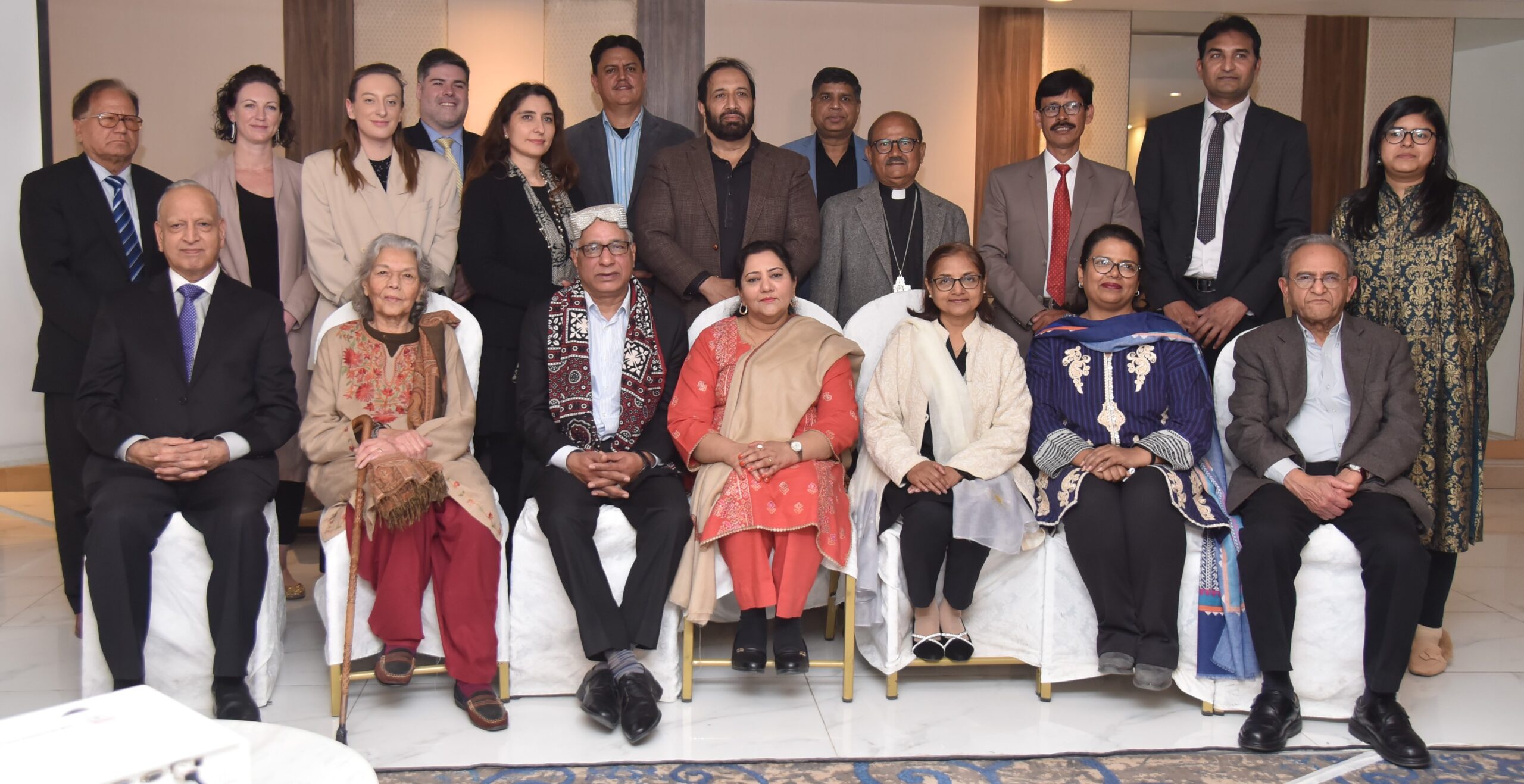News Desk
Islamabad, March 12, 2024
In a concerted effort to address the longstanding issues surrounding minority rights in Pakistan, civil society organizations (CSOs) convened a consultative meeting comprising representatives from national human rights institutions, legal experts, and human rights advocates. The primary focus of the meeting was to discuss the imperative need for legislation to establish a statutory National Commission for Minorities Rights.
Prominent figures in law and human rights, including Peter Jacob, Farhatullah Babar (Former Senator PPP), Dr. Shoaib Suddle (Chairman One-man Commission), Zafarullah Khan, Shafique Chaudhary, Dr. A. H. Nayyar, Pirbhu Lal Satyani, Syed Raza Ali, and Aftab Alam, emphasized the necessity of institutional protection for minorities to combat entrenched inequality and strengthen the rule of law and good governance.
Participants expressed grave concerns over the historical inadequacies in the establishment of minority rights commissions, citing issues such as a lack of a solid legal framework, restricted mandates, incompetence, insufficient autonomy, and limited resources. They highlighted the urgent need for legislation to establish a National Commission for Minorities Rights, underscoring that the delay in doing so would perpetuate the unresolved human rights issues faced by minorities.
Notably, coalition partners of the federal government, including PML-N, PPP, and MQM, have committed in their election manifestos for 2024 to establish a statutory national commission for minorities’ rights. Participants urged the federal government to collaborate with human rights experts to draft a bill and pass legislation to establish the commission, empowering it to make policy recommendations, investigate complaints, and propose remedies against human rights violations.
Recommendations from the meeting included ensuring that the prospective commission, while reflecting religious diversity, operates as a human rights institution rather than a religious body. Additionally, there was consensus that representation from entities such as the Council of Islamic Ideology or Evacuee Trust Property Board was unnecessary, aligning with the precedents set by other national human rights institutions.
Organized by the Centre for Social Justice (CSJ), the meeting concluded with the formation of a working group tasked with drafting a comprehensive bill adhering to the UN Paris Principles and the directives of the Supreme Court of Pakistan issued on June 19, 2014 (SMC No. 1 of 2014). The group pledged to collaborate with federal ministries, legislators, and political parties to introduce the bill in parliament.


